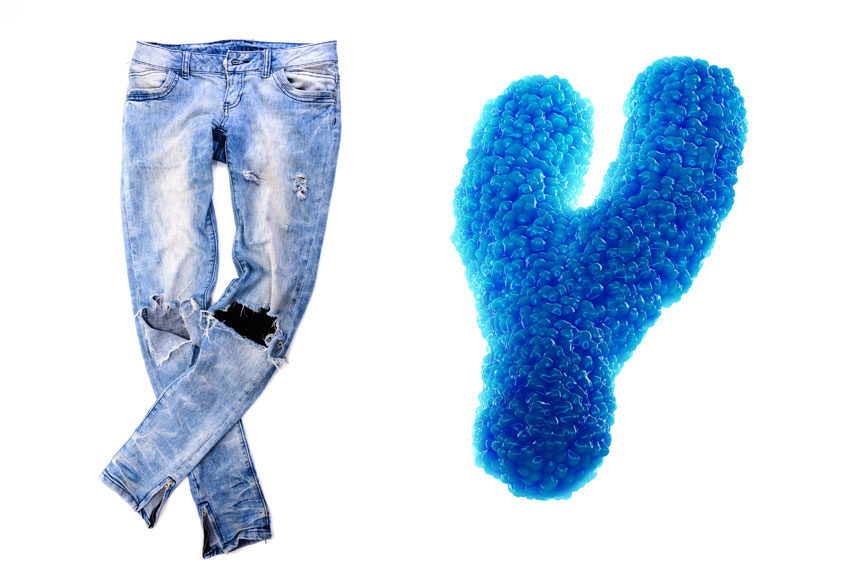“Your Health Checkup” is our online column by Dr. Douglas Zipes, an internationally acclaimed cardiologist, professor, author, inventor, and authority on pacing and electrophysiology. Dr. Zipes is also a contributor to The Saturday Evening Post print magazine. Subscribe to receive thoughtful articles, new fiction, health and wellness advice, and gems from our archive.
Order Dr. Zipes’ books, Ari’s Spoon, a new novel, as well as Bear’s Promise and Damn the Naysayers, A Doctor’s Memoir. Check out his website at dougzipes.com.
We owe the discovery of jeans to Levi Strauss and genes to Watson and Crick. I doubt either could have predicted the ways in which their breakthroughs would define us. . . more specifically, jeans with holes and genes with deletions.
It is beyond me why anyone would spend outrageous sums of money for a brand-new pair of jeans ripped in the knees (or elsewhere) just because marketing and fashionistas deemed them stylish. As a kid I remember my mother spending many hours patching the knees of jeans I’d worn through or torn falling on the sidewalk. I probably could’ve sold those raggedy clothes for a tidy sum today.
Of course, it all may just be a set up to be replaced by the next fashion craze: patched jeans that cover all those holes.
While we have a choice about purchasing holey jeans, we have no choice about worn out genes, or more scientifically, genes deleted because of a chromosome loss; they are the focus of a recent phenomenal scientific discovery. It turns out that aging spontaneously alters male genes without our permission and with unwanted results. Over time, errors occur in the genes that help define our sex and may help explain why men die on average five years younger than women.
Chromosomes are thread-like structures that contain our 20,000-25,000 genes. We have 23 pairs of chromosomes in every normal cell of our body. Of these, women have an XX chromosome, while men have an XY chromosome, the defining chromosome that makes a male biologically a male. The Y chromosome is the smallest and contains fewer genes, and its functions are not fully understood. However, recent startling observations have found that during aging, some men, especially smokers, begin to lose their Y chromosome in a fraction of their cells, mainly in the white blood cell population. The missing Y chromosome occurs in about 40 percent of men older than 70 years and results in increased risk of dying from cardiac fibrosis (heart scarring), heart failure, and other types of cardiovascular disease.
This “Loss of Y Disease” is an exciting discovery because blocking the pathway that causes deletion of the Y chromosome may be a future therapy to prevent heart disease and slow the aging process.
As my mother mended my tattered jeans years ago, scientists may be able to repair our deleted genes in the future.
Become a Saturday Evening Post member and enjoy unlimited access. Subscribe now




Comments
I learned in school years ago about the XX chromosome in women, and the XY in men, making men the weaker sex. This is why men have to be even more health conscious (overall) than women. As far as the tattered jeans go, that winds up happening to them anyway, like it or not—I don’t. To pay outrageous prices for that look is pretty ridiculous, and sad.